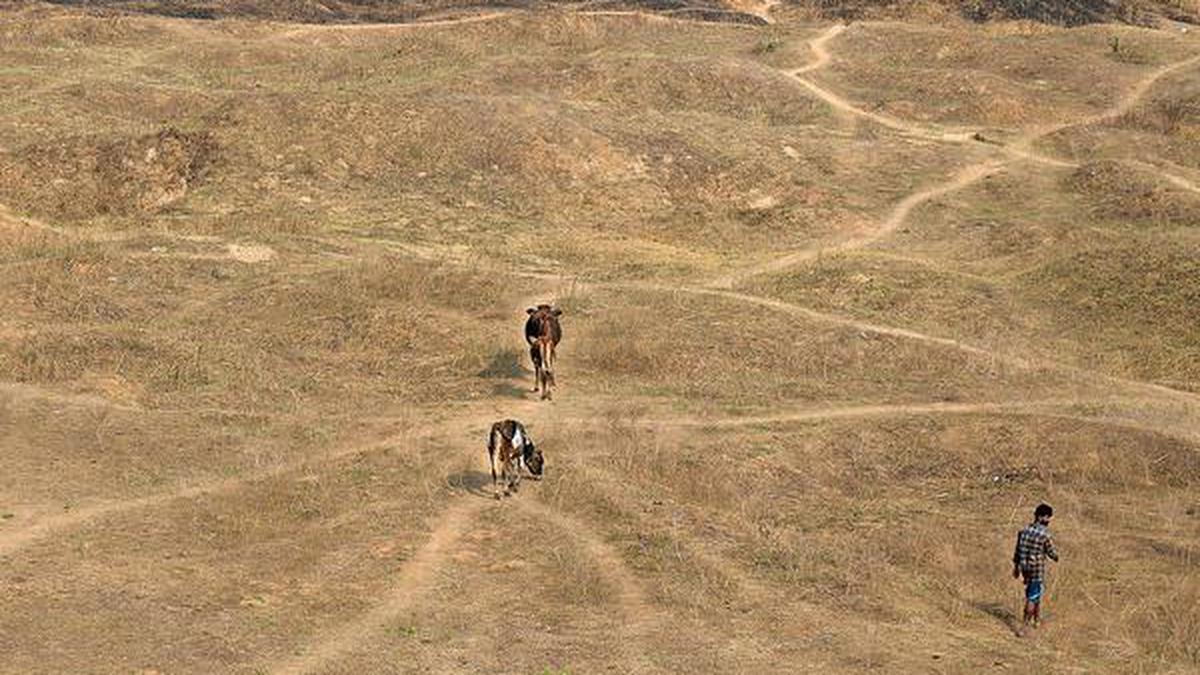
‘Tech infrastructure, skilled IT resources and advanced space programme helps India deal with environmental challenges’: Shaikha Salem Al Dhaheri
The Hindu
India has immense human resources and immense challenges. The IUCN World Conservation Congress in 2025 in Abu Dhabi will bring together 10-15k delegates from 160 countries to discuss global conservation issues, and India can help shape the agenda. India's diverse membership and tech infrastructure can help address challenges like biodiversity loss, climate change, pollution, and sustainability. Hosting the Congress in the Middle East will bring regional conservation issues to the forefront.
As the world’s most populous country and one of the fastest growing economies, India has immense human resources. However, ensuring food and water security for over 1.4 billion people will mean both agricultural expansion and infrastructure development. If not planned and executed with care, this expansion can further exacerbate existing challenges of deforestation, air pollution and plastic pollution which can have significant implications for endangered species, habitats, and key terrestrial and marine ecosystems, said Shaikha Salem Al Dhaheri, Secretary General of the Environment Agency - Abu Dhabi (EAD).
The UAE has won the bid to host the World Conservation Congress of the International Union for Conservation of Nature (IUCN) in 2025 in Abu Dhabi. Slated to be held in Abu Dhabi in October, 2025, it is expected to bring an estimated 10,000-15,000 delegates from over 160 countries across the globe and is hoping to be an event which could galvanise conservation actions to protect the planet amid local and global challenges.
In an interview with The Hindu, Ms. Al Dhaheri, Secretary General of EAD, which submitted the bid on behalf of Abu Dhabi and the UAE government, spoke about what the Congress expects to achieve, what it means for the Middle East, and India’s role in it.
“India can help shape the agenda of the Congress to achieve positive outcomes for biodiversity and environment. India has been an IUCN member since 1969 with two of the former IUCN Presidents coming from India. India has significant presence in the IUCN and has a National Committee with over 30 members representing governments, non-government organisations and civil societies. It is this diverse membership, which brings extensive knowledge and expertise, from policy making to natural resources management to livelihood and food security, that will further enrich the Congress discussions,” she said.
Listing the challenges faced by India, she pointed out that addressing them will depend on finding innovative solutions, integrating best of the information, communication, and space technologies. “India, with its enormous technology infrastructure, vast pool of skilled IT resources and advanced space programme, is well equipped to deal with them and demonstrate its leadership to the world. India can also play an equally important role in climate related discussion, especially as the country grapples with challenges of air pollution in some of its biggest metropolitan cities. Much will depend on synergies between country’s energy and environment policies,” she added.
Though the IUCN is yet to decide on the themes for the 2025 Congress, she said the Congress is likely to focus on key concerns and challenges related to biodiversity, climate change, pollution, and overall environmental sustainability. A significant part of the deliberations would also revolve around ways and mechanism for delivering on the Global Biodiversity Framework, she added.
“The challenges of biodiversity loss remain our most pressing concern and an immediate challenge too. It is critical that the Congress identifies clear directions for implementing actions under the KM Global Biodiversity framework, to stop and reverse biodiversity loss and to restore nature through its 23 targets over the next decade. As the IUCN Congress will take place within a years’ time from the Climate COP28 in the UAE, it will provide an ideal opportunity to take forward discussions and actions from the COP and ensure integration of climate goals and actions into resolutions coming out of the IUCN Congress,” she explained.

 Run 3 Space | Play Space Running Game
Run 3 Space | Play Space Running Game
 Traffic Jam 3D | Online Racing Game
Traffic Jam 3D | Online Racing Game
 Duck Hunt | Play Old Classic Game
Duck Hunt | Play Old Classic Game



